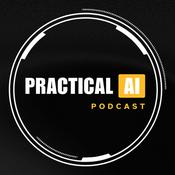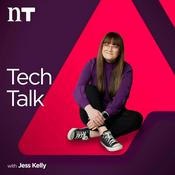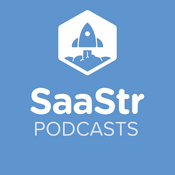84 episodes
- Dilshan Wijesooriya, Senior Cloud Engineer, discusses a real incident where migrating EKS nodes to AL2023 caused the cluster autoscaler to lose AWS permissions silently.
You will learn:
Why AL2023 blocks pod access to instance metadata by default, breaking components that relied on node IAM roles (like cluster autoscaler, external-DNS, and AWS Load Balancer Controller)
How to implement IRSA correctly by configuring IAM roles, Kubernetes service accounts, and OIDC trust relationships, and why both AWS IAM and Kubernetes RBAC must be configured independently
The recommended migration strategy: move critical system components to IRSA before changing AMIs, test aggressively in non-production, and decouple identity changes from OS upgrades
How to audit which pods currently rely on node roles and clean up legacy IAM permissions to reduce attack surface after migration
Sponsor
This episode is sponsored by LearnKube — get started on your Kubernetes journey through comprehensive online, in-person or remote training.
More info
Find all the links and info for this episode here: https://ku.bz/T_YPfTfDb
Interested in sponsoring an episode? Learn more. - Fabián Sellés Rosa, Tech Lead of the Runtime team at Adevinta, walks through a real engineering investigation that started with a simple request: allowing tenants to use third-party Kafka services. What seemed straightforward turned into a complex DNS resolution problem that required testing seven different approaches before a working solution was found.
You will learn:
Why Kafka's multi-step DNS resolution creates unique challenges in multi-tenant environments, where bootstrap servers and dynamic broker lists complicate standard DNS approaches
The iterative debugging process from Route 53 split DNS through Kubernetes native pod DNS config, custom DNS servers, Kafka proxies, and CoreDNS solutions
How to implement the final solution using node-local DNS and CoreDNS templating with practical details including ndots configuration and Kyverno automation
Platform engineering evaluation criteria for assessing solutions based on maintainability, self-service capability, and evolvability in multi-tenant environments
Sponsor
This episode is sponsored by LearnKube — get started on your Kubernetes journey through comprehensive online, in-person or remote training.
More info
Find all the links and info for this episode here: https://ku.bz/NsBZ-FwcJ
Interested in sponsoring an episode? Learn more. - Amos Wenger walks through his production incident where adding a home computer as a Kubernetes node caused TLS certificate renewals to fail. The discussion covers debugging techniques using tools like netshoot and K9s, and explores the unexpected interactions between Kubernetes overlay networks and consumer routers.
You will learn:
How Kubernetes networking assumptions break when mixing cloud VMs with nodes behind consumer routers, and why cert-manager challenges fail in NAT environments
The differences between CNI plugins like Flannel and Calico, particularly how they handle IPv6 translation
Debugging techniques for network issues using tools like netshoot, K9s, and iproute2
Best practices for mixed infrastructure including proper node labeling, taints, and scheduling controls
Sponsor
This episode is sponsored by LearnKube — get started on your Kubernetes journey through comprehensive online, in-person or remote training.
More info
Find all the links and info for this episode here: https://ku.bz/6Ll_7slr9
Interested in sponsoring an episode? Learn more. - Tanat Lokejaroenlarb shares the complete journey of replacing EKS Managed Node Groups and Cluster Autoscaler with AWS Karpenter. He explains how this migration transformed their Kubernetes operations, from eliminating brittle upgrade processes to achieving significant cost savings of €30,000 per month through automated instance selection and AMD adoption.
You will learn:
How to decouple control plane and data plane upgrades using Karpenter's asynchronous node rollout capabilities
Cost optimization strategies including flexible instance selection, automated AMD migration, and the trade-offs between cheapest-first selection versus performance considerations
Scaling and performance tuning techniques such as implementing over-provisioning with low-priority placeholder pods
Policy automation and operational practices using Kyverno for user experience simplification, implementing proper Pod Disruption Budgets
Sponsor
This episode is sponsored by StormForge by CloudBolt — automatically rightsize your Kubernetes workloads with ML-powered optimization
More info
Find all the links and info for this episode here: https://ku.bz/T6hDSWYhb
Interested in sponsoring an episode? Learn more. - Festus Owumi walks through his project of building a lightweight version of Kubernetes in Go. He removed etcd (replacing it with in-memory storage), skipped containers entirely, dropped authentication, and focused purely on the control plane mechanics. Through this process, he demonstrates how the reconciliation loop, API server concurrency handling, and scheduling logic actually work at their most basic level.
You will learn:
How the reconciliation loop works - The core concept of desired state vs current state that drives all Kubernetes operations
Why the API server is the gateway to etcd - How Kubernetes prevents race conditions using optimistic concurrency control and why centralized validation matters
What the scheduler actually does - Beyond simple round-robin assignment, understanding node affinity, resource requirements, and the complex scoring algorithms that determine pod placement
The complete pod lifecycle - Step-by-step walkthrough from kubectl command to running pod, showing how independent components work together like an orchestra
Sponsor
This episode is sponsored by StormForge by CloudBolt — automatically rightsize your Kubernetes workloads with ML-powered optimization
More info
Find all the links and info for this episode here: https://ku.bz/pf5kK9lQF
Interested in sponsoring an episode? Learn more.
More Technology podcasts
Trending Technology podcasts
About KubeFM
Discover all the great things happening in the world of Kubernetes, learn (controversial) opinions from the experts and explore the successes (and failures) of running Kubernetes at scale.
Podcast websiteListen to KubeFM, The Big Tech Show and many other podcasts from around the world with the radio.net app

Get the free radio.net app
- Stations and podcasts to bookmark
- Stream via Wi-Fi or Bluetooth
- Supports Carplay & Android Auto
- Many other app features
Get the free radio.net app
- Stations and podcasts to bookmark
- Stream via Wi-Fi or Bluetooth
- Supports Carplay & Android Auto
- Many other app features


KubeFM
Scan code,
download the app,
start listening.
download the app,
start listening.





































